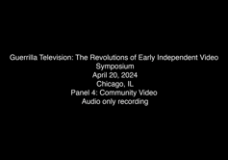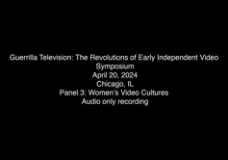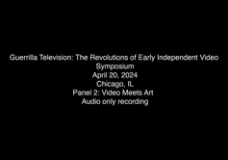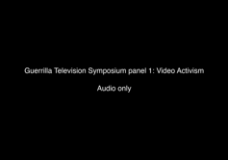Guerrilla Television
The dawn of the Portapak era saw a flurry of activity in New York City, but almost immediately video spread to San Francisco and Chicago, but also to western Ohio, to upstate New York, to rural Kentucky, to New Orleans… all over the country, in cities and towns, at colleges and at local TV stations. This panel looks at the unexpected centers of production that arose in the 1970s, and the importance of these community-based organizations to the wider Guerrilla Television movement.
Moderator: Angela J. Aguayo, Associate Professor Media & Cinema Studies at the University of Illinois, Urbana-Champaign and author of Documentary Resistance: Social Change and Participatory Media. Panelists: Deirdre Boyle, professor emerita of media studies at The New School and author of Subject to Change: Guerrilla Television Revisited; Ariel Dougherty, mediamaker, teacher, producer, advocate, co-founder of Women Make Movies; Gene Fredericks, archivist, New Orleans Video Access Center; Tom Weinberg, creator/producer of Image Union, Center for New Television, founder of Media Burn Archive; Denise Zaccardi, founder and executive director, Community TV Network.







